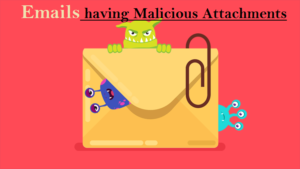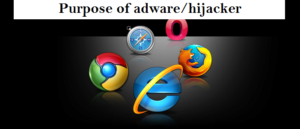Unmasking the Central Loteria Nacional Europa Email Scam
Central Loteria Nacional Europa Email Scam Outline
Central Loteria Nacional Europa Email is a fraudulent email which disguises itself as a legitimate letter from Central Loteria Nacional Europa. This fake email claims to be a final notification regarding unclaimed prize money. It claims that an appointed legal advisor is processing the payment but in actual this email is completely bogus.
This scam letter poses to be from Central Loteria Nacional Europa. It claims to be a last notification related unclaimed prize money. It proclaims that the recipient is entitled to a total of EUR 8,740,302.10, with an initial prize amount of EUR 5,816,412.00.
The email claims than an appointed legal advisor is processing the payment on behalf of the recipient. This bogus letter informs the recipients that the unclaimed winnings have been lucratively invested for over two years; it creates a false sense of urgency for the recipient to claim their supposed prize.
Furthermore, to proceed with the claim, the email provides a registration form for claiming the prize. While filling the registration the form, it asks personal information such as recipient’s name, address, profession, phone number, birth date and email. It also outlines a supposed legal process handled by the mentioned legal firm, assuring that the verification process is free for the recipient and the associated costs will be covered by the International Lotto Commission.
At first glance, this page seems to be legitimate but it has so many red flags which indicate it’s a phishing website. These red flags include urgency tactics, grammatical errors and the request for sensitive information.
It’s imperative to mention that this email has a PDF file attached to it. This fake lottery winning document contains various elements to create an illusion of legitimacy. It includes bogus logo, stamp, signature, ticket and other components to make the document credible.
But keep in mind that the scammers behind this email solely aim to extract the recipient’s sensitive information or money. Therefore, it is highly recommended to be very cautious if you receive such suspicious emails to prevent yourself from identity theft, financial loss and other sort of exploitation.
Text presented in the “Central Loteria Nacional Europa” email letter:
Subject: SIE SIND INFORMIERT
Central Loteria Nacional Europa.
Calle De Espoz Y Mina, 28012 Madrid, Spain
TEL./FAX +34-604-347-995
Email: [email protected]
Sehr Geehrter Kunde
AbschlieЯende Mitteilung fьr die Zahlung des nicht beanspruchten Preisgeldes
Wir mцchten Sie informieren, dass das Bьro des nicht Beanspruchten Preisgeldes in Spanien,unsere Anwaltskanzlei ernannt hat, als gesetzliche Berater zu handeln, in der Verarbeitung und der Zahlung eines Preisgeldes, das auf Ihrem Namen gutgeschrieben wurde, und nun seit ьber zwei Jahren nicht beansprucht wurde.
Der Gesamtbetrag der ihnen zusteht betrдgt momentan 8.740.302.10 EUROS
Das ursprьngliche Preisgeld bertug 5.816.412,00 EUROS. Diese Summe wurde fuer nun mehr als zwei Jahre, Gewinnbringend angelegt, daher die aufstockung auf die oben bennante Gesammtsumme. Entsprechend dem Bьros des nicht Beanspruchten Preisgeldes,wurde dieses Geld als nicht beanspruchten Gewinn einer Lotteriefirma bei ihnen zum verwalten niedergelegt und in ihrem namen versichert. Nach Ansicht der Lotteriefirma wurde ihnen das Geld nach einer Weihnachtsfцrderunglotterie zugesprochen. Die Kupons wurden von einer Investmentgesellschaft gekauft.Nach Ansicht der Lotteriefirma wurden sie damals Angeschrieben um Sie ьber dieses Geld zu informieren es hat sich aber leider bis zum Ablauf der gesetzten Frist keiner gemeldet um den Gewinn zu Beanspruchen. Dieses war der Grund weshalb das Geld zum verwalten niedergelegt wurde. GemдЯ des Spanischen Gesetzes muss der inhaber alle zwei Jahre ueber seinen vorhanden Gewinn informiert werden. Sollte dass Geld wieder nicht beansprucht werden,.wird der G
ewinn abermals ueber eine
Mit freundlichen GrьЯen
Loteria Naciona Estado ANMELDEFORMULAR FЬR DEN GEWINNANSPRUCH
Bitte geben Sie die folgenden Informationen, wie unten gefordert, faxen es zurьck an unsere Bьro sofort fьr uns in der Lage zu sein die Legalisierung Prozess Ihrer Personliche investiertes Preisgeld zu vervollstдndigen, und das Geld wird Ihnen von der La Caixa Int Bank ausgezahlt. Alle Prozess Ьberprьfung durch unsere Kanzlei ist fьr Sie kostenlos, weil unsere Kosten werden von der internationalen Lotto Kommission am Ende des Prozesses zu zahlen, wenn Sie Ihr Geld erhalten.Wenn Sie nicht die erforderlichen Informationen vor der Zeit gegeben hat, kцnnen ist Anwaltskanzlei nicht haftbar gemacht werden, wenn Ihr Geld reinvestiert wurde.
Ein Bestдtigungsschreiben wird Ihnen gefaxt werden sofort wenn wir komplette Ьberprьfung der Informationen die Sie uns zur Verfьgung stellen habe, Ich werde die Investmentbank unverzьglich ьber die von Ihnen angegebene Informationen zu kommen, bevor sie werden mit Ihnen Kontakt aufnehmen fьr die aus Zahlung von Ihrem Geld . Ihre Daten werden vertraulich gehalten nach der Europдischen Unionn Datenschutzrecht.
VORNAMEN:……………………….NAMEN:…………………………………………………….
REFERENZ No:.. ………………SKP/60-900/23……………………GEWINN-SUMME: …………………..
ANSCHRIF: ……………………………………………..
POSTLEITHZAHL: ……….ORT: …………BERUF……………………………………………….
TELEFON: ………………….MOBILE: ………………..FAX: ……………………………………..
GEBURTSDATUM: ………………………………. EMAIL:……………………………………
DATUM: ………………………..UNTERSCHRIFT: ……………………………………………….
.Loteria Nacional Fiscal Y Accesoria horario de consultas Lunes. – Viernes De. 09 – 16.30 Reg. 65420/ M L A &. Miembro seсor del Consejo de Constitucional de Espaсa Email [email protected] – .Acocйate con Bank; La Caixa: Swiftcode: Caixesbbxxx.
In terms of email-based cyber threats, what are the different types of malicious emails?
Emails having Malicious Attachments
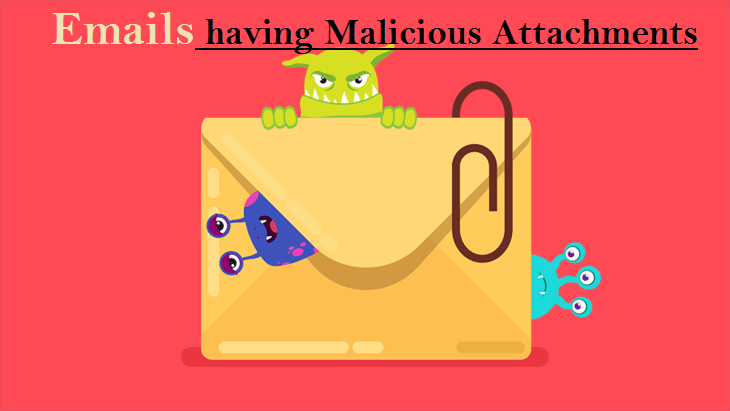
Email spam containing malicious attachments is a commonly employed method by cybercriminals to compromise users’ computers with malware. Malicious attachments often harbor trojans that possess the ability to pilfer sensitive data such as banking details, passwords, and other confidential information.
The primary objective of cybercriminals in these attacks is to deceive their potential victims into accessing a compromised email attachment. They commonly employ email messages that discuss recently obtained invoices, faxes, or voice messages to accomplish this aim.
If an unsuspecting individual succumbs to the trap and opens the attachment, their computer becomes infected, allowing cybercriminals to gather a substantial amount of confidential data.
Although it is a more intricate technique to pilfer personal data (as spam filters and antivirus programs typically identify such endeavors), if cybercriminals achieve success, they can access a broader spectrum of information and continue accumulating data over an extended duration.
Phishing Emails

Typically, cybercriminals employ deceitful emails to deceive individuals on the internet into divulging their confidential personal information, such as login credentials for diverse online platforms, email accounts, or online banking details.
These types of attacks are commonly known as phishing. In a phishing attack, cybercriminals typically send an email that mimics the branding of popular services like Microsoft, Amazon, DHL, or Netflix. They craft messages with a sense of urgency, such as incorrect shipping details or expired passwords, and include a hyperlink, hoping to entice unsuspecting recipients into clicking on it.
Upon clicking the provided link in these email messages, victims are redirected to a counterfeit website that closely resembles the legitimate one. In this deceptive environment, victims are prompted to enter their password, credit card information, or other sensitive data, which is subsequently harvested by cybercriminals for malicious purposes.
Spam Emails
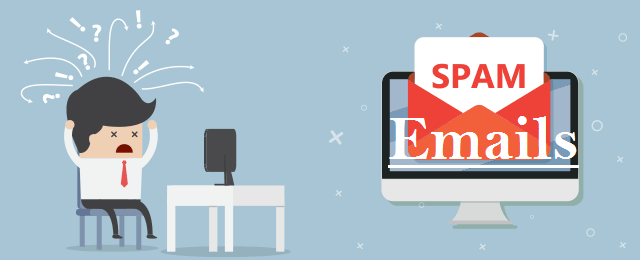
Spam emails are unsolicited, bulk messages sent to a large number of recipients simultaneously. They often contain unwanted advertisements, scams, or fraudulent offers. The primary purpose of spam emails is to promote products, services, or websites, sometimes of dubious nature.
These emails can be sent by individuals or automated bots, and they often target a wide range of recipients without their consent. Spam emails can clog up inboxes, consume storage space, and pose risks such as phishing attempts or malware distribution.
Sextortion Emails
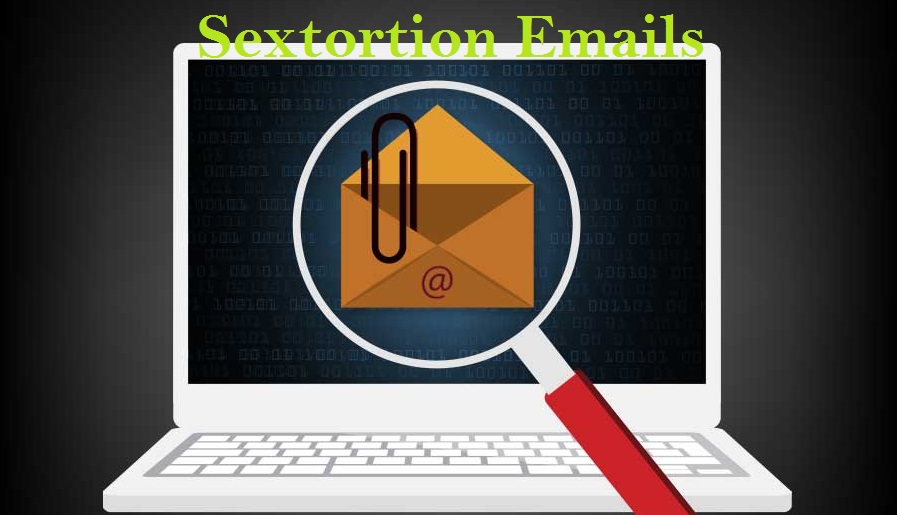
This type of email is a form of phishing known as a “sextortion scam.” It preys on individuals’ fears and attempts to blackmail them into paying a ransom. The scam email falsely claims that a cybercriminal has gained unauthorized access to the victim’s webcam and possesses a compromising video recording of them engaging in explicit activities.
The scammers leverage the potential embarrassment and shame associated with such content to coerce the victim into paying a ransom, often in the form of cryptocurrency, to prevent the release of the alleged video. However, it is crucial to understand that these claims are entirely false and fabricated.
What are some indicators or signs that can help identify a malicious email?
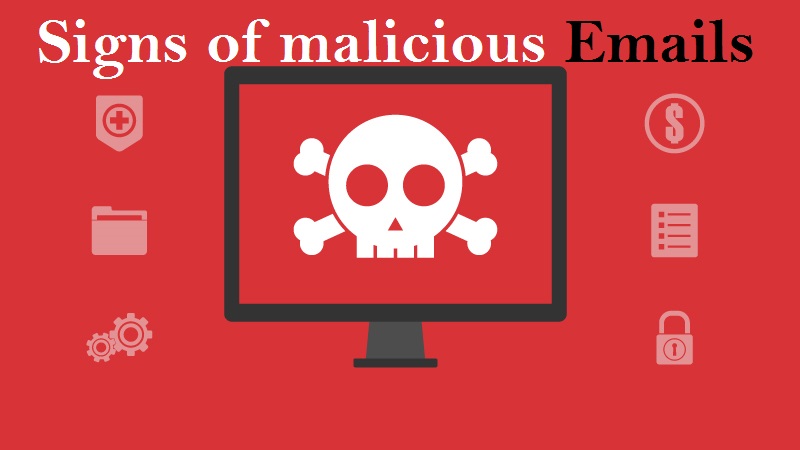
To spot a malicious email you can look for the following indicators:
Suspicious Sender: Check the sender’s email address and verify if it matches the official contact information of the organization or person they claim to represent. Be cautious of email addresses that contain misspellings, random numbers, or unfamiliar domain names.
- Poorly Written Content: Pay attention to grammar and spelling mistakes, unusual language, or poor formatting. Legitimate organizations usually maintain professional communication standards.
- Urgent or Threatening Language: Beware of emails that create a sense of urgency, pressure you to take immediate action, or threaten negative consequences if you don’t comply. Scammers often use fear or time-sensitive situations to manipulate victims.
- Suspicious Attachments or Links: Be careful of email attachments or links, especially from unknown or unexpected sources. Don’t open attachments or click on links unless you are confident about their legitimacy. Hover over links to see the actual URL before clicking.
- Requests for Personal Information: Legitimate organizations typically don’t request sensitive information, such as passwords, Social Security numbers, or credit card details, via email. Avoid providing personal data unless you are certain of the email’s authenticity.
- Unusual Requests or Offers: Be wary of emails offering unexpected rewards, prizes, or financial opportunities. If something seems too good to be true or doesn’t align with your normal interactions, it could be a sign of a scam.
- Suspicious Email Design: Poorly designed or visually inconsistent emails may indicate a scam. Watch for generic greetings, mismatched logos, or distorted images.
If you have doubts about an email’s legitimacy, it’s best to err on the side of caution. Avoid clicking on links or downloading attachments, and consider contacting the sender through a verified channel to verify the email’s authenticity.
What actions can be taken if you have fallen for an email scam?
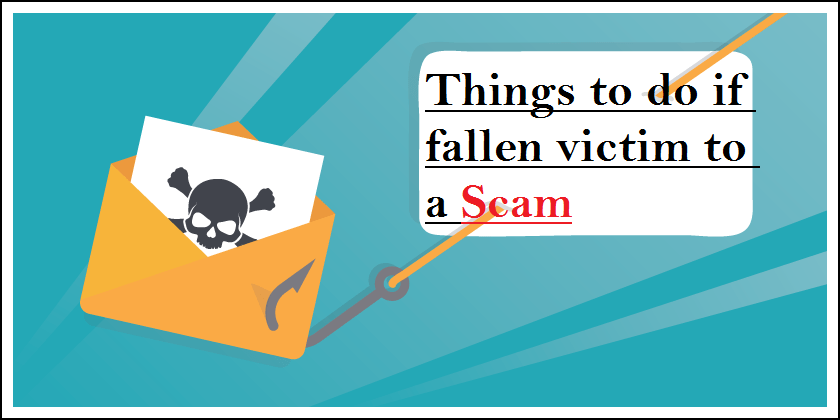
Below are the steps you should take if you’ve fallen prey to the Central Loteria Nacional Europa Email Scam.
- If you have mistakenly provided your credit card information after clicking on a link in a phishing email, it is crucial to immediately contact your bank and inform them about the situation. It is highly likely that you will need to take steps to cancel the compromised credit card and request a replacement for enhanced security.
- If you have inadvertently provided your password after falling for an email scam, it is essential to promptly change your password. Typically, cybercriminals gather stolen login details and sell them to other malicious groups for potential exploitation. By changing your password immediately, you reduce the likelihood of criminals having sufficient time to cause harm or unauthorized access to your accounts and information.
- If you notice any indications of identity theft, it is important to promptly reach out to the Federal Trade Commission (FTC). The FTC will gather information about your situation and develop a personalized recovery strategy.
- Assist in safeguarding fellow internet users by reporting phishing emails to organizations such as the National Fraud Information Center, Anti-Phishing Working Group, FBI’s Internet Crime Complaint Center, and the U.S. Department of Justice.
- If you have inadvertently opened a malicious attachment, it is likely that your computer has been compromised. To address this, it is advised to conduct a thorough scan of your system using a reliable antivirus software. We suggest utilizing SpyHunter 5 for Windows to help mitigate any potential threats.
⇓⇓Download Spyhunter 5 Free Scanner⇓⇓
Do make sure to read SpyHunter’s EULA and Privacy Policy. Spyhunter free scanner downloaded just scans and detect present threats from computers and can remove them as well once, however it requires you to wait for next 48 hours. If you intend to remove detected threats instantly, then you will have to buy its licenses version that will activate the software fully.
Frequently Asked Questions
Why was I included in the distribution of this email?
Phishing emails are often disseminated by threat actors through extensive campaigns, leading to thousands of recipients receiving comparable messages.
If I have viewed a spam email but refrained from opening the attachment, is there a possibility that my computer has been infected with malware?
Simply opening or reading an email does not pose a direct risk of malware infection. The actual threat arises when you interact with malicious attachments or links contained within the email, triggering potential malware download or installation processes.
If I downloaded and opened a file from a spam email, does that mean my computer is infected?
If the file you opened from a spam email was an executable file (.exe, .run, etc.), there is a high chance that your computer may be infected. However, if the file was a document format (.doc, .xls, .one, .pdf, etc.), the risk of infection may be lower as these formats usually require additional actions to initiate the download or installation of malware, such as enabling macros or clicking on embedded content.
If I have unknowingly shared my personal information in response to a deceptive spam email, what steps should I take to mitigate the potential risks?
If you have mistakenly shared your login credentials, it is crucial to change the passwords for all affected accounts promptly. Additionally, if sensitive personal information like identification documents or credit card details were disclosed, it is important to promptly notify the relevant authorities or organizations responsible for handling such incidents.
Is SpyHunter 5 capable of detecting and eliminating malware infections that may be present in email attachments?
SpyHunter 5 is powerful security software that is specifically designed to scan devices and effectively remove various types of malware infections. With its comprehensive scanning capabilities, it can detect and eliminate most known malware threats, including those that may be present in email attachments and pop-up notifications. Running a thorough system scan is crucial to ensure that all potential threats are identified and removed from your device.

